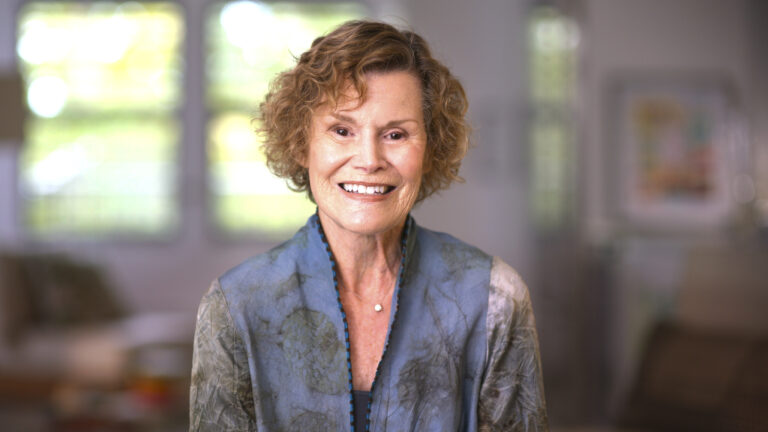Judy Blume Forever (2023 | USA | 97 minutes | Davina Pardo, Leah Wolchok)
Judy Blume is such a wonderful subject for a documentary it’s almost a surprise that we’re just getting a doc about her life now. A career-spanning film about Ms. Blume’s life is long overdue. Besides being an almost-universally beloved author who has more people that confess to her (mostly adolescents) than the Pope, she just radiates warmth. I saw her speak on her book tour for In the Unlikely Event novel when it came through Seattle and the joy that she brought to every person in the room was palpable.
In one sense, hearing Judy Blume tell her life story is more than enough to make a movie interesting, but there was something that left me feeling a bit disappointed. I realized midway through the movie that no one tells Judy Blume’s story better than Judy Blume. Not just that, but each reader has their own, unique relationship with her so hearing Samantha Bee and Lena Dunham talk about Blume and her legacy didn’t add much to the documentary other than filler.
One thing I did truly love is that the filmmakers found people who had written Judy Blume letters when they were younger and they (and Blume herself) read their correspondences. One young woman’s letters about her brother’s suicide was truly heartbreaking. It was remarkable that a writer of Judy Blume’s profile would take the time to write letters back to children who wrote to her. It’s even more remarkable that she still has those same letters today. Her breakthrough book, Are You There God? It’s Me, Margaret was published in 1970, so some of those letters are more than fifty years old. Even at 83, she’s active as a bookstore owner in Key West, Florida and her staff will tell you over the phone if she’s in the store so you can come in and meet her.
She’s been writing about some of the most taboo topics of adolescence (and adulthood) and it has been revelatory for youths (finding Then Again Maybe I Won’t as a twelve year old was eye-opening and helped make sense of the changes I was experiencing but didn’t understand). But that has also earned her a lot of enemies (I was shocked at how nasty and aggressive Pat Buchanan was to her when she appeared on CNN’s “Crossfire”). The documentary astutely notes that a lot of the backlash she received began when Christian activists felt empowered by Ronald Reagan’s election to the presidency in 1980.
I enjoyed so much of Judy Blume Forever and found it to be one of the most satisfying experiences watching a documentary I’ve ever had, so the things that disappointed me really disappointed me. For example, and much to her credit, Judy Blume spoke out against the censorship and posthumous editing that Roald Dahl’s most beloved books are facing today. But there were a handful of younger authors who noted that her books may not reflect the sensibilities of today’s young readers. One author, Jason Reynolds, says that her books are timely, not timeless. It seemed to me like they were opening the possibility of having her books edited when she’s no longer around to stop it. That would be a travesty and it made for a pessimistic end to a movie overflowing with optimism because of its effervescent star and the joy she brought to millions of readers.
Judy Blume Forever is now streaming on Amazon Prime.


